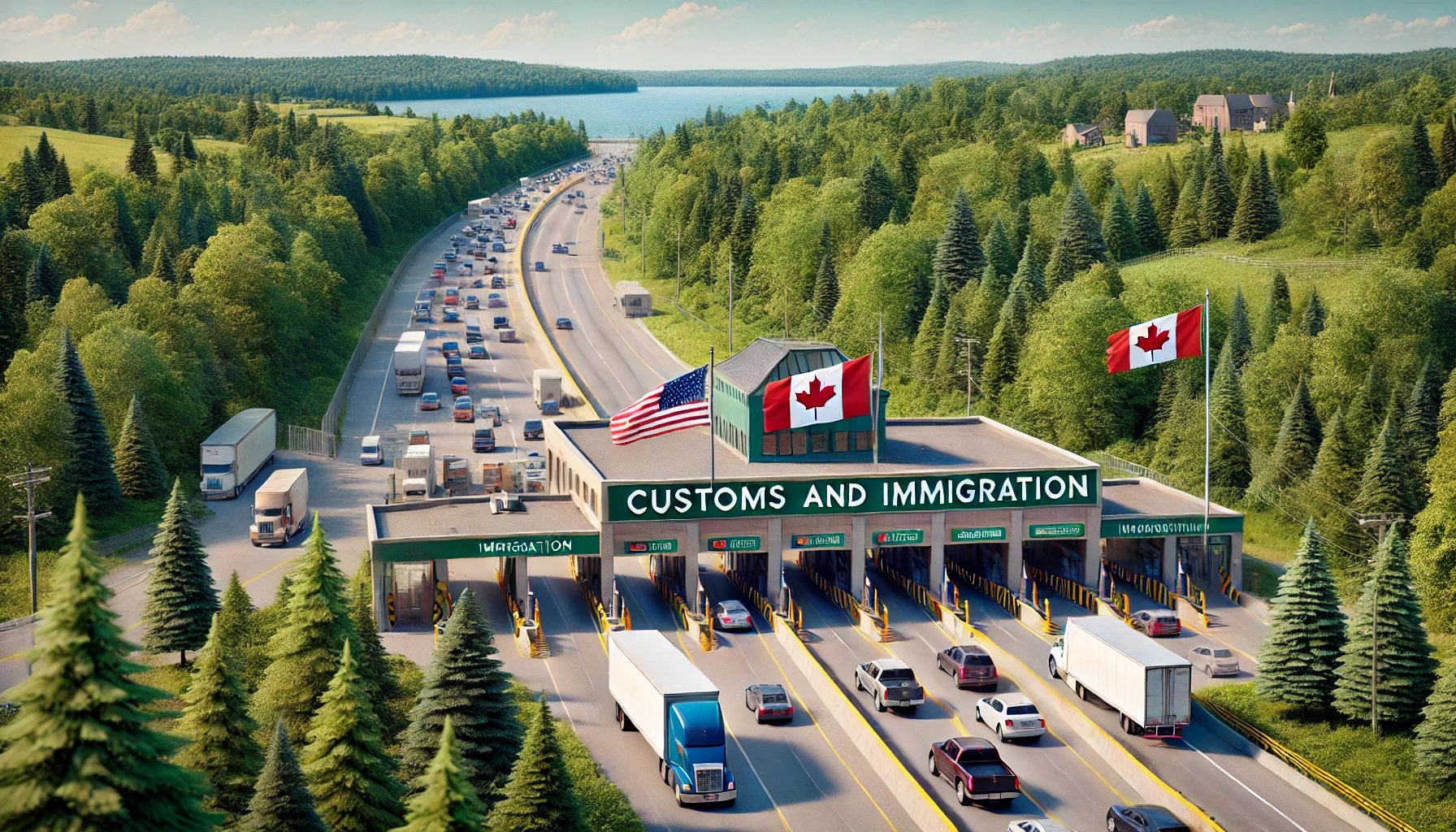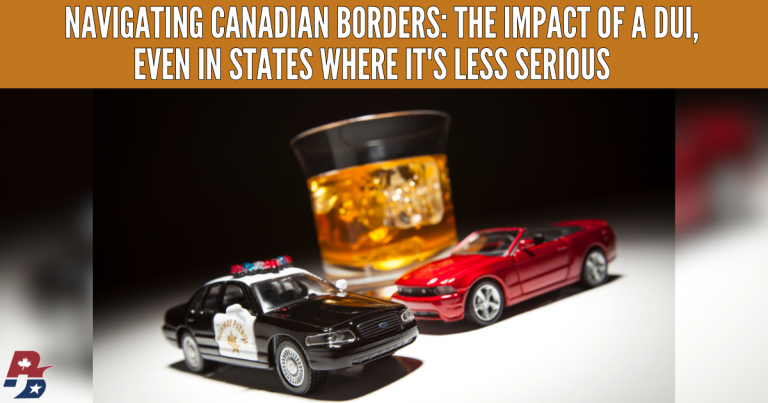
While the penalties for driving under the influence (DUI) vary significantly state to state, in Canada the maximum penalty for a DUI is now carrying a maximum sentence of 10 years. Unlike some US states such as California, there is no double standard in Canada when sentencing a non-professional driver versus a commercial driver for DUI. Professional and non-professionals drivers receive the same sentence.
Border crossing eligibility depends on the seriousness of a DUI conviction based on Canadian laws and not U.S. laws.
Commercial Truck Drivers Entering Canada With A DUI
Commercial truck drivers and non-professional drivers are treated the same when it comes to DUI convictions and eligibility to enter Canada.
Although there are a lot of caveats to eligibility, the most important is whether you were charged prior to December 18th, 2018. This date is important because the maximum penalty for a DUI conviction increased from 5 years to 10 years on that date. This had an unintended consequence that changed a DUI conviction from being a minor crime to becoming a serious crime. If it were not for Canada’s Immigration Minister intervening, every foreign citizen with a DUI conviction would have to make an expensive application to enter Canada.
DUI Entry Via “Deemed Rehabilitation” Grandfathered In
The old system of “deemed rehabilitation” after 10 years was terminated due to the increase in the maximum penalty for DUI in Canada on December 18th, 2018. Canada’s Immigration Minister made a policy announcement that, “anyone deemed rehabilitated for an impaired driving offence outside Canada before December 18, 2018…would not need to reapply for relief to overcome inadmissibility due to that same offence.” Essentially what that means is anyone convicted before December 18, 2018 is eligible to enter Canada after a waiting period of 10 years. To enter Canada earlier requires an application for either a Temporary Resident Permit (TRP) or Criminal Rehabilitation. Had the Minister not grandfathered in the rehabilitation option millions of Americans would have been forced to apply for permits to enter Canada.
Note that “deemed rehabilitation” is available for one DUI conviction only with no other crimes.
Is the DUI Policy Change Permanent?
Policies are subject to change as the current Canadian government deems fit. This means a change in government could potentially mean a change in this policy. Different Parties will have different stances on most matters and this is no exception.
Application for Rehabilitation or Temporary Resident Permit
For those commercial truckers that are not deemed rehabilitation under the revised policy, there are still two options available. A Canada Temporary Resident Permit (TRP) permits a driver to cross the border for a set amount of time. This means it can be used for multiple entries up to as long as three years. While a TRP is fairly quick to be granted Criminal Rehabilitation takes much longer to obtain. The benefit of Criminal Rehabilitation is that it is a permanent permit and never needs to be renewed for the rest of the driver’s life. For commercial drivers in hurry, a TRP can be applied for at the same time as a Criminal Rehabilitation Permit is applied for. This way a commercial driver can cross the Canadian border more quickly until the permanent rehabilitation certificate is received.
How To Get Started
Everyone’s situation is unique so it’s always a good idea to ask questions to get the correct answers. For a free consultation, simply give Mitch a call at (204) 488-6350 or 1-800-438-7020. Alternatively, you may complete the contact form on this page.





